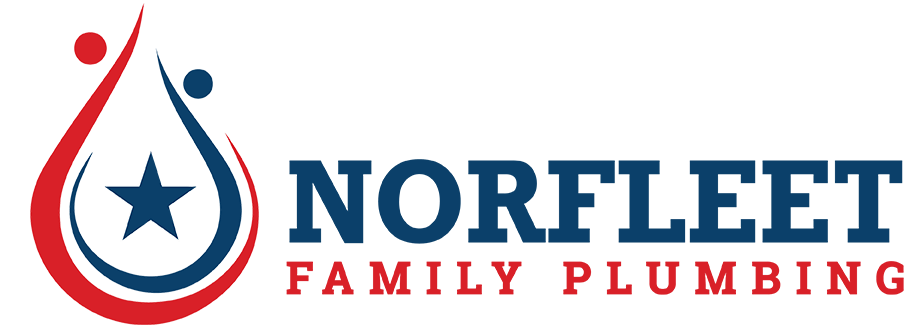Prevent Plumbing Emergencies Before They Happen
Plumbing emergencies can lead to significant damage to a home and disrupt daily life. Burst pipes, clogged drains, and water heater failures are just a few examples of issues that can lead to costly repairs and inconvenience. However, proactive measures and routine maintenance can avoid many of these emergencies. Homeowners can protect their property and keep a smoothly functioning plumbing system by understanding how to prevent plumbing emergencies. Working with a local plumbing expert can provide the necessary guidance and services to keep everything in top condition.
Regular Inspection of Pipes and Fixtures
One of the most effective ways to prevent plumbing emergencies is by regularly inspecting pipes and fixtures. Over time, pipes can corrode, joints weaken, and fixtures wear out. Small leaks or drips may seem insignificant but can quickly become major problems if not addressed promptly.
A thorough inspection by a local plumbing expert can recognize potential issues before they become emergencies. Looking for signs of corrosion, leaks, or weak spots in pipes and ensuring that all fixtures are in good working order can prevent unexpected failures. It is advisable to schedule inspections at least once a year to catch any problems early.
Routine Drain Cleaning
Clogged drains commonly cause plumbing emergencies, leading to backups, slow drainage, and even burst pipes. Debris, such as hair, grease, soap scum, and food particles, can collect in drains over time, generating blockages that disrupt the flow of water.
Routine drain cleaning is an essential preventative measure. A local plumbing expert can perform professional drain cleaning to remove buildup and clear the pipes. Techniques such as hydrojetting can effectively eliminate blockages without damaging the pipes, ensuring that water flows freely and reducing the risk of clogs.
Monitoring Water Pressure
High water pressure may seem desirable, but it can strain pipes, fixtures, and appliances excessively. Over time, this pressure can cause leaks, burst pipes, and damage to water-using appliances. Monitoring and maintaining optimal water pressure is crucial for preventing plumbing emergencies.
Installing a pressure regulator can help control water pressure throughout the home. A local plumbing expert can assess the current pressure levels and make any necessary adjustments to protect the plumbing system. Regular monitoring ensures the pressure remains within safe limits, preventing undue stress on the pipes.
Water Heater Maintenance
The water heater is critical to any plumbing system, providing hot water for daily activities. However, water heaters can develop issues such as sediment buildup, corrosion, or faulty thermostats, leading to leaks or complete failure. Regular maintenance can prevent these problems.
A local plumbing expert can flush the water heater to remove sediment, check for signs of corrosion, and inspect the thermostats and heating elements. Replacing worn-out parts before they fail can prolong the water heater's life and prevent emergencies such as leaks or lack of hot water.
Winterizing the Plumbing System
Cold weather poses a significant risk to plumbing systems, particularly in regions where temperatures drop below freezing. Frozen pipes can burst, leading to extensive water damage and costly repairs. Properly winterizing the plumbing system is essential to prevent this type of emergency.
Before the onset of cold weather, a local plumbing expert can insulate exposed pipes and drain outdoor faucets and advise keeping indoor temperatures stable to prevent freezing. Taking these precautions can protect the plumbing system from the dangers of freezing temperatures and reduce the likelihood of burst pipes.
Addressing Minor Issues Promptly
Small plumbing issues, such as a dripping faucet or a slow drain, can often be overlooked. However, these small problems can quickly escalate into major emergencies if not addressed in a timely manner. Ignoring small issues can lead to increased water damage, higher repair costs, and mold growth.
Homeowners should address any minor plumbing issues as soon as they are noticed. A local plumbing expert can diagnose and repair minor problems before they become significant concerns. Early intervention can save money and prevent the inconvenience of dealing with a full-blown emergency.
Educating Household Members
Educating everyone in the household about proper plumbing use and emergency procedures can also prevent plumbing disasters. Simple actions, such as not flushing non-degradable items down the toilet, using drain filters, and knowing how to shut off the water supply in an emergency, can make a big difference.
A local plumbing expert can provide guidance on best practices for maintaining the plumbing system and offer tips on what to do in case of an emergency. Ensuring that everyone in the house is aware of these practices can reduce the likelihood of accidental damage and improve response times in case of an emergency.
Final Thoughts
Preventing plumbing emergencies requires a combination of regular maintenance, prompt repairs, and proactive measures. By working with a local plumbing expert, homeowners can diagnose potential issues before they become emergencies and take steps to protect their plumbing system. Routine inspections, drain cleaning, water pressure monitoring, and water heater maintenance are just a few of the strategies that can help avoid costly and disruptive plumbing problems. Investing in preventative measures extends the life of the plumbing system and provides peace of mind, knowing that the home is protected from unexpected disasters.
If you need a licensed, bonded, experienced professional for plumbing, sewer camera inspection, or water heater installation, and water heater repair in Chandler, Gilbert, Mesa, Queen Creek, Ahwatukee or San Tan Valley call Norfleet Family Plumbing Heating and Air at 480-681-1764.
Homeowners can protect their property and keep a smoothly functioning plumbing system by understanding how to prevent plumbing emergencies.

